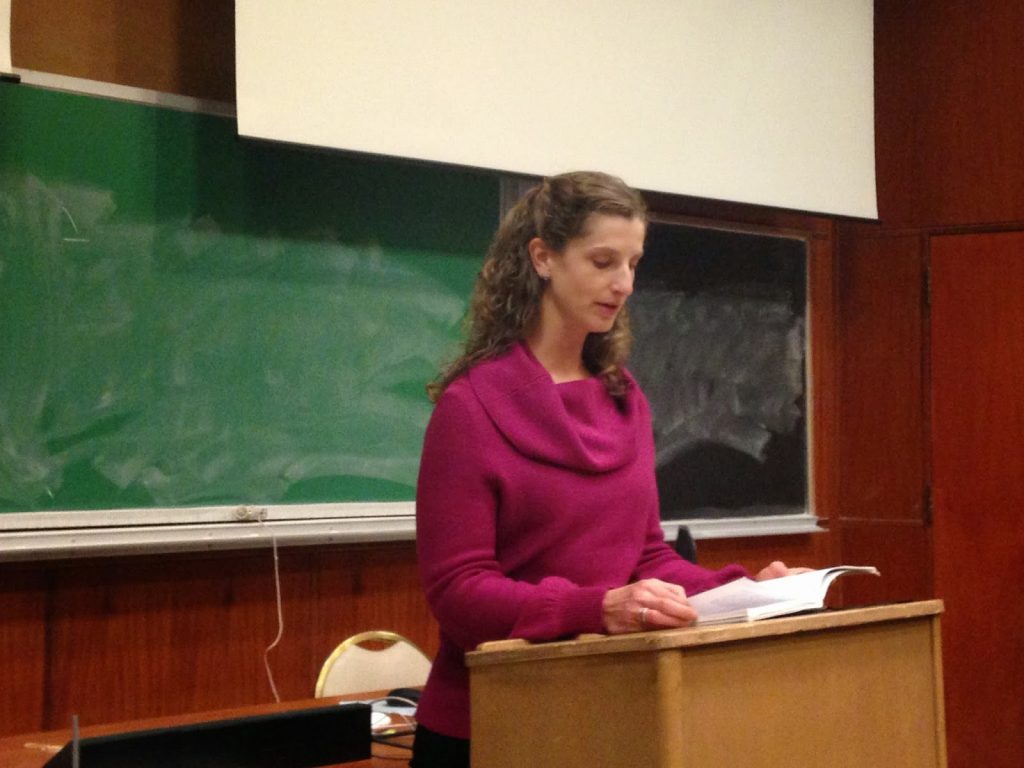If You Want to Be a Writer
At SUNY Binghamton, I had the opportunity to meet with a class of graduate and undergradute students who studied Flashes of War. This unique class meets only 5 times over the course of semester, sessions lasting 2 hours each time the English Department hosts a visiting author. The students come from across the board–I met Enlish majors, writing majors, biology students, a linguistics major, and a pre-med student, among others. These students also attend the visiting author readings, and I imagine they write some sort of academic or creative response to what they learn from each visit.
In order to prepare, I was asked to brainstorm “important things you should know if you want to be a writer.” The suggestion both excited and humbled me. My first thought was that I don’t have anything to say to budding writers. They have to learn it for themselves and I’m still learning many, many things. But I knew an answer like that wouldn’t fly, and certainly wasn’t what I was being paid for! I spent some time with my journal while on the plane en route to upstate New York, and here’s the list I came up with:
- Read like a writer: Read widely, but read like a writer. Learn how to put on your X-ray glasses for each sentence, each paragraph. Identify the bones (the structure) of a piece and ask yourself critical questions as you go along. How did the writer achieve that impact? Why did the writer choose to shape the piece in this way?
- Don’t settle for easy answers: Live a full life and don’t settle for easy answers. Black and white never makes a good story. Gray–the in-between, the uncertainty–always does. Remember that where there’s a question, there’s a story. Which questions should you try to answer? The ones where you feel the most genuine curiosity. The ones that keep you up at night. The ones that won’t leave you alone until you weave narrative together and land on something true.
- Remain disciplined: Discipline, more than talent, contributes to your success as a writer. Talent and luck come in at a close second. These are things beyond your control. But that #1–discipline, discipline, discipline–is all yours. Own it.
- Become obsessive: Indulge yourself in getting lost in the heat and focus of an activity, a concept, a theme, a hobby, or an idea. From running to biking to polka dancing to the archives of the Smithsonian–whatever it is, you’ve got to have something in your life that exercises the muscle of becoming utterly focused and present. For many years, my obsession was waitressing. Then martial arts. Now running. Think of a soccer player dribbling downfield with a speedy defender at her back. Think of a ballerina, mid-leap. There is no before and after. There is only focus, in the moment. It’s that feeling a writer needs to nurture over and over, because it’s the same feeling that works in our favor when we’re at the desk, too.
- Be protective: Know how to identify what feeds your imagination and be protective of it. Understand the factors that balance your life, and keep that balance in check. Living a balanced, imaginative life is as much the work of the writer as the words themselves.
- Hone your perspective: Writing has as much to do with learning how to think and learning how to see, as it does the actual words you put on the page. Nurture these skills. Work with them. Devote your life to them. Where one person sees a daffodil slumped in a patch of flowers, another sees a poem, a story, a memory from the past. Understand what filter your perspective applies to the world and work that into your writing. Then…
- Know your blindspots: …look beyond that filter. Look at your blindspots. What have you forgotten? What aren’t you seeing? Be vigilant. Learn to see what’s hiding and let it light up the page.


